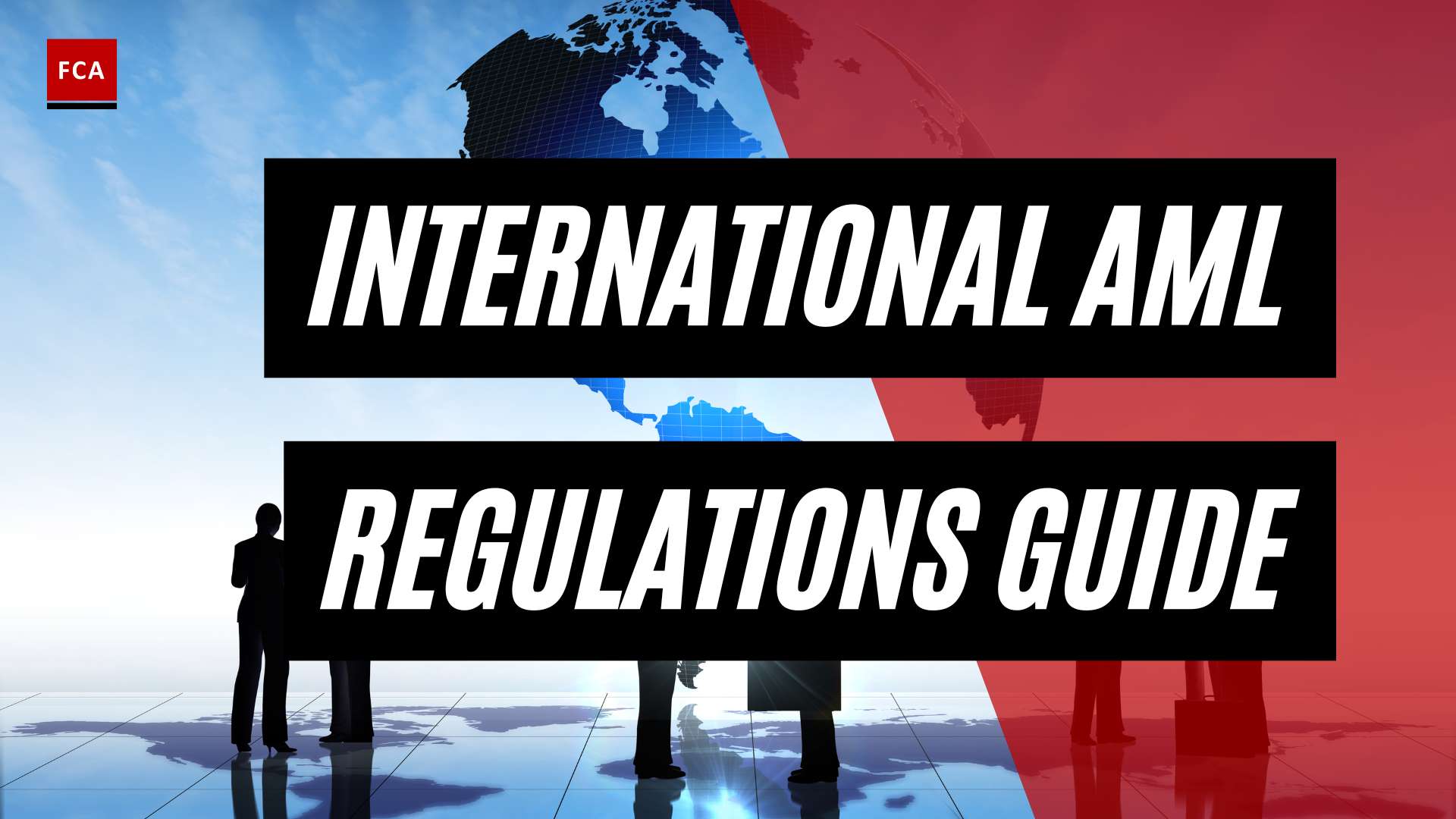AML Compliance in Emerging Markets
As the global economy continues to evolve, the importance of Anti-Money Laundering (AML) compliance in emerging markets cannot be overstated. These markets present unique challenges and opportunities, making effective AML compliance essential for maintaining financial integrity. In this section, we will explore the importance of AML compliance in emerging markets and provide an overview of these dynamic economies.
Importance of AML Compliance in Emerging Markets
AML compliance is crucial in emerging markets due to various reasons. Firstly, emerging markets often experience rapid economic growth and attract foreign investments. While these developments bring numerous benefits, they also create opportunities for money laundering and illicit financial activities. Implementing robust AML measures helps safeguard the integrity of these markets and protects them from becoming safe havens for illicit funds.
Secondly, emerging markets are increasingly interconnected with the global financial system. As cross-border transactions become more prevalent, the risk of money laundering and terrorist financing rises. Adhering to AML regulations and international standards ensures that emerging markets can participate in the global economy while mitigating the associated risks.
Lastly, strong AML compliance in emerging markets promotes investor confidence and trust. By establishing effective AML frameworks, these markets demonstrate their commitment to combating financial crime and protecting their financial systems. This, in turn, attracts foreign investments and enhances their reputation as reliable and secure business destinations.
Overview of Emerging Markets
Emerging markets encompass a diverse range of countries with rapidly developing economies. These markets exhibit unique characteristics such as significant population growth, expanding middle classes, and fast-paced technological advancements. Some well-known emerging markets include China, India, Brazil, Russia, and South Africa.
The economic potential of emerging markets is substantial, with opportunities for investment and trade. However, these markets also present distinct challenges when it comes to AML compliance. Factors such as cultural and geographic diversity, limited resources and capacity, and the need for cross-border collaboration pose specific considerations for implementing effective AML frameworks.
To address these challenges, emerging markets must tailor their AML compliance strategies to their specific contexts. It is crucial to understand the local regulatory landscape, cultural norms, and the unique risks associated with each market. By doing so, emerging markets can develop comprehensive AML compliance frameworks that align with international standards while addressing their specific needs.
In the following sections, we will delve deeper into the trends, challenges, and case studies related to AML compliance in emerging markets. Stay tuned to gain valuable insights into this evolving landscape and explore best practices for AML compliance in emerging markets.
Trends in AML Compliance
As emerging markets continue to grow and develop, the landscape of anti-money laundering (AML) compliance is also evolving. In this section, we will explore three key trends that are shaping AML compliance in emerging markets: enhanced regulatory focus, adoption of technology and automation, and a strengthened risk-based approach.
Enhanced Regulatory Focus
Regulators in emerging markets are increasingly placing a stronger emphasis on AML compliance. They recognize the importance of combating money laundering and the financing of terrorism to protect their economies and maintain financial integrity. Consequently, regulatory bodies are enhancing their oversight, enforcement, and penalties for non-compliance.
To meet these regulatory expectations, financial institutions and other regulated entities must ensure robust AML compliance programs. This includes implementing comprehensive policies and procedures, conducting thorough customer due diligence, and regularly monitoring transactions for suspicious activities. By aligning with regulatory requirements, organizations can mitigate risks and maintain compliance. For more information on AML compliance in emerging markets, refer to our article on AML compliance in emerging markets.
Adoption of Technology and Automation
To keep pace with the evolving AML landscape, emerging markets are embracing technology and automation. These advancements offer significant benefits by enhancing the efficiency and effectiveness of AML compliance processes.
Financial institutions are leveraging artificial intelligence, machine learning, and data analytics to analyze large volumes of data and identify patterns indicative of money laundering or illicit activities. Automated transaction monitoring systems help detect suspicious transactions in real-time, enabling timely reporting and investigation. Additionally, digital identity verification solutions are being utilized to streamline customer onboarding processes while adhering to AML regulations.
By embracing technology and automation, organizations can strengthen their AML compliance efforts, improve detection capabilities, and reduce the burden of manual processes. However, it’s crucial to ensure that these technologies are regularly updated and validated to address emerging risks effectively.
Strengthened Risk-Based Approach
A risk-based approach is a fundamental principle of AML compliance, and emerging markets are increasingly recognizing its significance. Instead of adopting a one-size-fits-all approach, organizations are focusing their efforts on identifying and mitigating the specific money laundering risks they face.
By conducting comprehensive risk assessments, organizations can prioritize their AML compliance efforts, allocate resources effectively, and tailor control measures accordingly. This risk-based approach enables a more targeted and efficient use of resources, ensuring that the highest risks are addressed adequately.
Furthermore, financial institutions are adopting a proactive stance by continuously monitoring and reassessing their risk profiles in response to changing market dynamics and emerging threats. This ongoing risk assessment process allows organizations to stay ahead of evolving money laundering trends and regulatory requirements.
By embracing enhanced regulatory focus, adopting technology and automation, and implementing a strengthened risk-based approach, emerging markets can enhance their AML compliance practices. These trends enable organizations to effectively combat money laundering and protect their financial systems’ integrity while contributing to the broader global effort against financial crime.
Challenges and Considerations
When it comes to anti-money laundering (AML) compliance in emerging markets, there are several unique challenges and considerations that organizations need to be aware of. These challenges can stem from cultural and geographic factors, limited resources and capacity, as well as the need for cross-border collaboration.
Cultural and Geographic Factors
Cultural and geographic factors play a significant role in shaping AML compliance in emerging markets. Each country has its own cultural norms, values, and legal systems, which can impact the understanding and implementation of AML regulations. Cultural nuances, language barriers, and differences in business practices can pose challenges when developing and implementing effective AML compliance programs.
Additionally, the geographic diversity of emerging markets can complicate AML compliance efforts. Some regions may have complex and porous borders, making it easier for illicit funds to flow across jurisdictions. Understanding the local context and adapting AML strategies to account for cultural and geographic factors is crucial for successful compliance.
Limited Resources and Capacity
Limited resources and capacity can hinder AML compliance efforts in emerging markets. Many organizations in these markets may face constraints in terms of financial resources, skilled personnel, and technological infrastructure. These limitations can make it difficult to implement robust AML systems and processes, conduct thorough customer due diligence, and monitor transactions effectively.
To address these challenges, organizations operating in emerging markets should prioritize resource allocation, invest in training and development programs, and leverage technology solutions that optimize efficiency and effectiveness. Implementing risk-based approaches and utilizing data analytics tools can help organizations make the most of their limited resources while still meeting regulatory requirements.
Cross-Border Collaboration
In today’s interconnected global economy, cross-border collaboration is essential for effective AML compliance in emerging markets. Money laundering and other financial crimes often transcend national boundaries, requiring international cooperation and information sharing. However, collaborating across jurisdictions can be challenging due to differences in legal frameworks, regulatory requirements, and data privacy concerns.
To enhance cross-border collaboration, emerging markets should strengthen their international partnerships, establish mutual legal assistance treaties, and participate in regional AML initiatives. Sharing best practices, intelligence, and conducting joint investigations can help combat money laundering and terrorist financing across borders.
By understanding and addressing these challenges and considerations, organizations can navigate the evolving landscape of AML compliance in emerging markets more effectively. Cultural sensitivity, resource optimization, and international collaboration are key elements in building robust AML compliance frameworks that align with local requirements while meeting global standards. For more information on AML compliance in emerging markets, refer to our article on aml compliance in emerging markets.
Case Studies: AML Compliance in Specific Emerging Markets
To better understand the practical application of AML compliance in emerging markets, let’s explore case studies from three different countries: Country X, Country Y, and Country Z.
Case Study 1: Country X
In Country X, the government has recently implemented stricter AML regulations to combat money laundering and terrorist financing. Financial institutions in the country are required to conduct enhanced due diligence on high-risk customers and report any suspicious transactions to the appropriate authorities.
To ensure compliance, banks and other financial institutions in Country X have invested in technology and automation solutions. These tools help in streamlining customer onboarding processes, conducting real-time transaction monitoring, and identifying potential risks. By adopting technology-driven solutions, financial institutions in Country X have been able to improve the effectiveness and efficiency of their AML compliance programs.
Case Study 2: Country Y
Country Y, an emerging market known for its rapid economic growth, has experienced an increase in financial transactions. This growth has led to a heightened focus on AML compliance to prevent illicit activities.
In Country Y, one of the key challenges is the limited resources and capacity of regulatory bodies and financial institutions. To address this, collaboration between the public and private sectors has been established. Financial institutions have partnered with regulatory authorities to share knowledge, expertise, and resources in developing robust AML frameworks.
Furthermore, Country Y has implemented a risk-based approach to AML compliance. This approach allows financial institutions to allocate their resources based on the level of risk associated with different customers and transactions. By focusing efforts on high-risk areas, financial institutions in Country Y can enhance their AML compliance effectiveness.
Case Study 3: Country Z
Country Z, an emerging market with a diverse cultural landscape, faces unique challenges when it comes to AML compliance. The cultural and geographic factors in Country Z make it susceptible to money laundering and other financial crimes.
To overcome these challenges, Country Z has implemented stringent regulations and guidelines. Financial institutions are required to conduct thorough customer due diligence and implement robust internal controls. Additionally, Country Z has emphasized cross-border collaboration with international counterparts to strengthen AML efforts.
By sharing intelligence, coordinating investigations, and promoting information exchange, Country Z has been able to enhance its AML compliance framework and mitigate risks associated with cross-border transactions.
These case studies highlight the diverse approaches taken by different emerging markets to enhance AML compliance. While each country faces its own unique challenges, the adoption of technology, collaboration, and risk-based approaches are common themes in their pursuit of effective AML frameworks.
As AML compliance in emerging markets continues to evolve, it is essential for professionals in compliance, risk management, and anti-money laundering to stay updated with the latest trends and best practices. For more information on AML compliance in emerging markets, refer to our article on aml compliance in emerging markets.
Future Outlook and Recommendations
As the landscape of Anti-Money Laundering (AML) compliance in emerging markets continues to evolve, it is important to stay ahead of anticipated changes and developments. Additionally, implementing best practices for AML compliance is crucial to mitigate risks and ensure regulatory compliance. In this section, we will explore the anticipated changes and developments in AML compliance and provide recommendations for best practices in emerging markets.
Anticipated Changes and Developments
-
Strengthened Regulatory Frameworks: Emerging markets are expected to enhance their regulatory frameworks to align with global AML standards. This may involve the implementation of stricter regulations, increased reporting requirements, and more robust enforcement mechanisms.
-
Technological Advancements: The adoption of technology and automation is anticipated to play a significant role in AML compliance in emerging markets. This includes the use of artificial intelligence, machine learning, and data analytics to detect and prevent money laundering activities more effectively.
-
Cross-Border Collaboration: As money laundering activities often transcend national borders, increased cross-border collaboration between regulatory authorities is expected. This collaboration will facilitate the exchange of information, intelligence, and best practices to combat illicit financial flows.
-
Focus on Digital Currencies and Cryptocurrencies: With the rise of digital currencies and cryptocurrencies, emerging markets are likely to introduce specific regulations and guidelines to address the money laundering risks associated with these technologies. This includes the implementation of Know Your Customer (KYC) procedures and transaction monitoring for digital asset service providers.
Best Practices for AML Compliance in Emerging Markets
To ensure effective AML compliance in emerging markets, it is important to adopt best practices tailored to the unique challenges and characteristics of these regions. Here are some recommended best practices:
-
Risk-Based Approach: Implement a risk-based approach to AML compliance, focusing resources on higher-risk areas and customers. Conduct thorough risk assessments to identify and mitigate potential vulnerabilities and develop appropriate risk management strategies.
-
Comprehensive AML Policies and Procedures: Establish comprehensive AML policies and procedures that comply with local regulations and international standards. Ensure clear guidelines for customer due diligence, suspicious activity monitoring, and reporting obligations.
-
Training and Awareness: Provide regular training and awareness programs to employees and stakeholders on AML regulations, emerging trends, and the importance of compliance. Foster a culture of compliance throughout the organization to ensure everyone understands their roles and responsibilities.
-
Technology and Automation: Leverage technology and automation solutions to enhance the efficiency and effectiveness of AML compliance processes. Implement robust transaction monitoring systems, customer screening tools, and data analytics capabilities to detect and prevent suspicious activities.
-
Ongoing Monitoring and Review: Establish a system for ongoing monitoring and review of AML compliance measures. Regularly assess the effectiveness of internal controls, identify areas for improvement, and stay updated with evolving regulatory requirements.
-
Collaboration and Information Sharing: Foster collaboration and information sharing with other financial institutions, regulatory bodies, and law enforcement agencies. Participate in industry forums, working groups, and public-private partnerships to exchange knowledge and best practices.
By anticipating changes and developments in AML compliance and implementing these best practices, organizations operating in emerging markets can enhance their AML frameworks, mitigate risks, and contribute to a safer financial ecosystem. To learn more about AML compliance in emerging markets and the specific challenges they face, refer to our articles on AML compliance in emerging markets, AML regulations in emerging markets, and AML compliance challenges in emerging markets.








